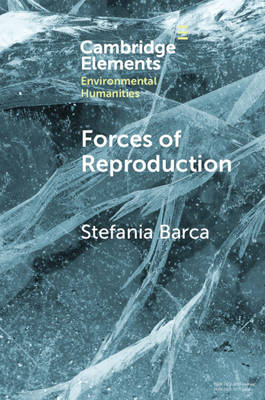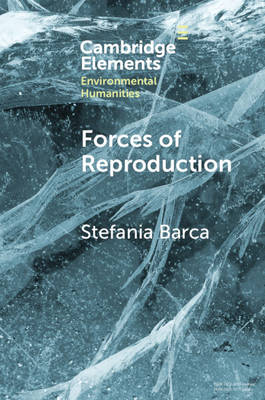
Bedankt voor het vertrouwen het afgelopen jaar! Om jou te bedanken bieden we GRATIS verzending (in België) aan op alles gedurende de hele maand januari.
- Afhalen na 1 uur in een winkel met voorraad
- In januari gratis thuislevering in België
- Ruim aanbod met 7 miljoen producten
Bedankt voor het vertrouwen het afgelopen jaar! Om jou te bedanken bieden we GRATIS verzending (in België) aan op alles gedurende de hele maand januari.
- Afhalen na 1 uur in een winkel met voorraad
- In januari gratis thuislevering in België
- Ruim aanbod met 7 miljoen producten
Zoeken
€ 24,45
+ 48 punten
Omschrijving
The concept of Anthropocene has been incorporated within a hegemonic narrative that represents 'Man' as the dominant geological force of our epoch, emphasizing the destruction and salvation power of industrial technologies. This Element develops a counter-hegemonic narrative based on the perspective of earthcare labour - or the 'forces of reproduction'. It brings to the fore the historical agency of reproductive and subsistence workers as those subjects that, through both daily practices and organized political action, take care of the biophysical conditions for human reproduction, thus keeping the world alive. Adopting a narrative justice approach, and placing feminist political ecology right at the core of its critique of the Anthropocene storyline, this Element offers a novel and timely contribution to the environmental humanities.
Specificaties
Betrokkenen
- Auteur(s):
- Uitgeverij:
Inhoud
- Aantal bladzijden:
- 88
- Taal:
- Engels
- Reeks:
Eigenschappen
- Productcode (EAN):
- 9781108813952
- Verschijningsdatum:
- 26/11/2020
- Uitvoering:
- Paperback
- Formaat:
- Trade paperback (VS)
- Afmetingen:
- 152 mm x 229 mm
- Gewicht:
- 127 g

Alleen bij Standaard Boekhandel
+ 48 punten op je klantenkaart van Standaard Boekhandel
Beoordelingen
We publiceren alleen reviews die voldoen aan de voorwaarden voor reviews. Bekijk onze voorwaarden voor reviews.









